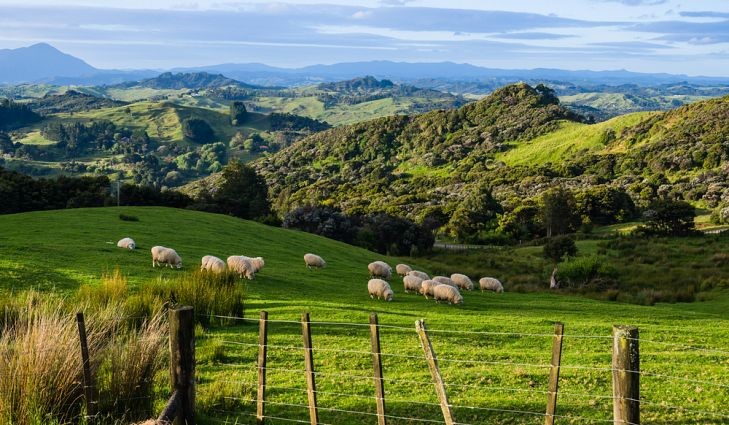A shift in government thinking about carbon farming and the Emissions Trading Scheme is reflected in a discussion paper on forestry management issues.
From 2023, under current rules, a new permanent forest category of the ETS would allow both exotic and indigenous forests to be registered in the scheme and earn New Zealand Units (NZU).
The government is now proposing to exclude exotic species – such as pinus radiata – from the permanent forest category.
Forestry Minister Stuart Nash and Climate Change Minister James Shaw today released a public discussion document that seeks feedback on ideas for better forest management.
Afforestation is a key element of New Zealand’s strategy to meet its climate change targets by offsetting carbon emissions, providing a source of bioenergy, and the replacement of high carbon materials.
But the increasing New Zealand Unit (NZU) price is driving higher rates of afforestation, particularly fast-growing permanent exotic forests. This is raising concerns among some industry groups and community organisations about the risk of permanent exotic forests displacing pastoral farming, and production and indigenous forests.
To manage these risks, the Government is consulting on:
- whether to prevent exotic forests from registering in the permanent post-1989 category in the NZ ETS. This to ensure any legislative changes can be passed by Parliament before this category commences on 1 January 2023.
- a proposal to adjust how the new carbon accounting method in the NZ ETS (averaging accounting) applies to remote and marginal land for harvesting. This is to reflect the later harvest age and extra carbon stored in some forests on remote and marginal to harvest land.
- opportunities for improving incentives for indigenous afforestation, following on from the Emissions Reduction Plan consultation late last year.
Information on these topics is contained in a discussion document, Managing exotic afforestation incentives: Proposals to change forestry settings in the NZ Emissions Trading Scheme, which was released today by Forestry Minister Stuart Nash and Climate Change Minister James Shaw.
“Climate change is a challenge we cannot postpone. The government wants to encourage afforestation to help meet our climate change targets, offset carbon emissions, and also help farmers, landowners and investors diversify their income streams,” said Stuart Nash.
“We want to encourage the right tree, in the right place, for the right reason.
“We intend to balance the need for afforestation with wider needs of local communities, regional economies, and the environment.”
The NZU price which has driven increased plantings of exotic has more than doubled over the past year, from around $35 in late 2020 to over $80 in February 2022.
But the government says permanent exotic forests such as radiata pine have potential environmental and ecological risks, such as pests, fire, damaged habitats for native species, biodiversity threats, and a relatively short lifespan compared to well-managed mixed indigenous forests.
Later this year, it will also consult on proposals which could give local councils more powers to decide under the Resource Management Act where exotic forests are planted in their areas.
James Shaw noted Climate Change Commission advice that we need to increase both indigenous and exotic tree planting to meet our emissions targets – but it also warned of the need to reduce our overall reliance on forestry offsets, and better manage the impacts of afforestation.
“For example, a proliferation of permanent exotic forestry could result in lower long-term carbon prices and potentially limit investment in low-carbon technologies. At the same time, an increase in native forestry will require additional management efforts to eliminate pests that feed on native trees,” Mr Shaw said.
The consultation is an opportunity for anyone with an interest in the future of forestry to have their say.
ACT ‘s rural spokesman, Mark Cameron, said the discussion document is a welcome and overdue response to the concerns of Rural New Zealand.
“For too long, rural New Zealand has not been listened to, in fact we’ve been treated with contempt by the urban political left. We’ve said for years that carbon farming is destroying communities and creating environmental problems for years to come.”
ACT says environmental policy is supposed to prevent harm to the environment, not subsidise it.
But Mr Cameron urged the Government to go further by:
- Properly rewarding farmers for the sequestration that already occurs on their farms.
- Ensuring the Overseas Investment Act treats carbon farming and other land uses on a level playing field. ACT favours foreign investment and says New Zealand needs investment capital, but creating a special exemption for foreign investors who want to cover New Zealand in pine trees was the wrong place to start.
- Letting New Zealanders redeem carbon credits from around the world, effectively allowing New Zealanders to pay people to plant trees anywhere in the world to offset their emissions, instead of just here.
Find out more at: https://www.mpi.govt.nz/consultations/managing-exotic-afforestation-incentives
Source: Minister of Forestry












